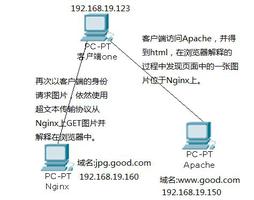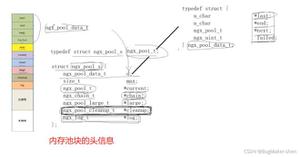JavaCustomAnnotationsExample

P.S This unit test example is inspired by this official Java annotation article.
1. @Test Annotation
This @interface tells Java this is a custom annotation. Later, you can annotate it on method level like this @Test(enable=false).
Test.java
package com.mkyong.test.core;import java.lang.annotation.ElementType;
import java.lang.annotation.Retention;
import java.lang.annotation.RetentionPolicy;
import java.lang.annotation.Target;
@Retention(RetentionPolicy.RUNTIME)
@Target(ElementType.METHOD)//can use in method only.
public @interfaceTest{
//should ignore this test?
publicbooleanenabled()defaulttrue;
}
Note
Method declarations must not have any parameters or a throws clause. Return types are restricted to primitives, String, Class, enums, annotations, and arrays of the preceding types.
2. @TesterInfo Annotation
This @TesterInfo is applied on class level, store the tester details. This shows the different use of return types – enum, array and string.
TesterInfo.java
package com.mkyong.test.core;import java.lang.annotation.ElementType;
import java.lang.annotation.Retention;
import java.lang.annotation.RetentionPolicy;
import java.lang.annotation.Target;
@Retention(RetentionPolicy.RUNTIME)
@Target(ElementType.TYPE)//on class level
public @interfaceTesterInfo{
publicenum Priority {
LOW, MEDIUM, HIGH
}
Priority priority()default Priority.MEDIUM;
String[]tags()default"";
String createdBy()default"Mkyong";
String lastModified()default"03/01/2014";
}
3. Unit Test Example
Create a simple unit test example, and annotated with the new custom annotations – @Test and @TesterInfo.
TestExample.java
package com.mkyong.test;import com.mkyong.test.core.Test;
import com.mkyong.test.core.TesterInfo;
import com.mkyong.test.core.TesterInfo.Priority;
@TesterInfo(
priority = Priority.HIGH,
createdBy ="mkyong.com",
tags ={"sales","test"}
)
publicclassTestExample{
@Test
voidtestA(){
if(true)
thrownewRuntimeException("This test always failed");
}
@Test(enabled =false)
voidtestB(){
if(false)
thrownewRuntimeException("This test always passed");
}
@Test(enabled =true)
voidtestC(){
if(10>1){
// do nothing, this test always passed.
}
}
}
4. Java reflection – Read the Annotation
Below example show you how to use Java reflection APIs to read and process the custom annotations.
RunTest.java
package com.mkyong.test;import java.lang.annotation.Annotation;
import java.lang.reflect.Method;
import com.mkyong.test.core.Test;
import com.mkyong.test.core.TesterInfo;
publicclassRunTest{
publicstaticvoidmain(String[] args)throws Exception {
System.out.println("Testing...");
int passed =0, failed =0, count =0, ignore =0;
Class<TestExample> obj = TestExample.class;
// Process @TesterInfo
if(obj.isAnnotationPresent(TesterInfo.class)){
Annotation annotation = obj.getAnnotation(TesterInfo.class);
TesterInfo testerInfo =(TesterInfo) annotation;
System.out.printf("%nPriority :%s", testerInfo.priority());
System.out.printf("%nCreatedBy :%s", testerInfo.createdBy());
System.out.printf("%nTags :");
int tagLength = testerInfo.tags().length;
for(String tag : testerInfo.tags()){
if(tagLength >1){
System.out.print(tag +", ");
}else{
System.out.print(tag);
}
tagLength--;
}
System.out.printf("%nLastModified :%s%n%n", testerInfo.lastModified());
}
// Process @Test
for(Method method : obj.getDeclaredMethods()){
// if method is annotated with @Test
if(method.isAnnotationPresent(Test.class)){
Annotation annotation = method.getAnnotation(Test.class);
Test test =(Test) annotation;
// if enabled = true (default)
if(test.enabled()){
try{
method.invoke(obj.newInstance());
System.out.printf("%s - Test "%s" - passed %n",++count, method.getName());
passed++;
}catch(Throwable ex){
System.out.printf("%s - Test "%s" - failed: %s %n",++count, method.getName(), ex.getCause());
failed++;
}
}else{
System.out.printf("%s - Test "%s" - ignored%n",++count, method.getName());
ignore++;
}
}
}
System.out.printf("%nResult : Total : %d, Passed: %d, Failed %d, Ignore %d%n", count, passed, failed, ignore);
}
}
Output
Testing...Priority :HIGH
CreatedBy :mkyong.com
Tags :sales, test
LastModified :03/01/2014
1 - Test "testA" - failed: java.lang.RuntimeException: This test always failed
2 - Test "testC" - passed
3 - Test "testB" - ignored
Result : Total : 3, Passed: 1, Failed 1, Ignore 1
Done.
以上是 JavaCustomAnnotationsExample 的全部内容, 来源链接: utcz.com/z/513083.html




